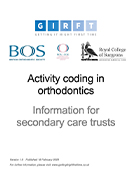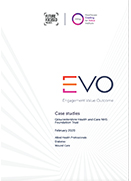Technical review – March 2020
NHS Resolution has updated the safety actions for year three of its maternity incentive scheme. A number of small changes or additions have been made to the actions first released in December last year. For example, on safety action 2 (submission of data to maternity services data set), the data quality and completeness assessment will consider data for April and May 2020, not March and April as previously indicated. The guidance provides the conditions for the scheme, full details of the 10 safety actions and a range of commonly asked questions and answers. In year two of the scheme, 117 trusts achieved all 10 actions, enabling them to recover their contributions to the maternity incentive fund and share in any unallocated funds.
Health Education England is introducing a national standardised student data collection tool from April to aid the calculation of tariffs for student placements. The tool will cover degree courses, excluding doctors and healthcare scientists, and the data used to calculate the non-medical education and training (NMET) tariff (also known as the placement tariff). The data, which is also used to estimate current and future capacity, has been collected in different ways – and at different times – from employers and education providers. But this will change from April with the introduction of a standardised electronic collection.
 A booklet clarifying guidance on coding for hospital dentistry has been issued by Getting it Right First Time (GIRFT), the British Orthodontic Society and the Royal College of Surgeons. The guidance is based on GIRFT deep-dive visits to trusts and conversations with clinical coding teams and has been developed to improve the quality of data and reduce unwarranted variation. It is aimed at clinical coders, clinicians and other health professionals in secondary care trusts.
A booklet clarifying guidance on coding for hospital dentistry has been issued by Getting it Right First Time (GIRFT), the British Orthodontic Society and the Royal College of Surgeons. The guidance is based on GIRFT deep-dive visits to trusts and conversations with clinical coding teams and has been developed to improve the quality of data and reduce unwarranted variation. It is aimed at clinical coders, clinicians and other health professionals in secondary care trusts.
 A new case study-based briefing sets out Gloucestershire Health and Care NHS Foundation Trust’s experience piloting the new Engagement Value Outcome framework – developed by the HFMA Healthcare Costing for Value Institute and Future-Focused Finance. The framework – known as EVO – aims to support the engagement of multidisciplinary teams in the understanding and use of patient level information and costs and its relationship to value. The briefing covers pilots on allied health professionals, the diabetes service and wound care. Further case studies from the programme across other pilot trusts will be published soon.
A new case study-based briefing sets out Gloucestershire Health and Care NHS Foundation Trust’s experience piloting the new Engagement Value Outcome framework – developed by the HFMA Healthcare Costing for Value Institute and Future-Focused Finance. The framework – known as EVO – aims to support the engagement of multidisciplinary teams in the understanding and use of patient level information and costs and its relationship to value. The briefing covers pilots on allied health professionals, the diabetes service and wound care. Further case studies from the programme across other pilot trusts will be published soon.
Two new briefings have been published by the HFMA covering year-end reminders as NHS bodies prepare their 2019/20 annual report and accounts. They draw on feedback at and following the association’s pre-accounts planning conferences earlier this year. 2019 year-end reminders provides a more detailed summary of key issues including: the new IFRS16 leasing standard; disclosures relating to standards IFRS9 and IFRS15; discount rates; and employer contributions to the pension scheme. 2019/20 year-end reminders for non-executive directors and lay members provides a more summarised description of the main issues to be aware of for 2019/20 as well as suggesting key questions that non-executives and lay members should be asking during their review of the report and accounts.
NHS Improvement revised its national cost collection publication and its patient-level costs PLICS portal shortly after its initial release in February. The corrections included uploading (3 February) a reissued data file including unadjusted data – the initial upload had included market forces factor (MFF)-adjusted data. There were also corrections (18 February) to the scaled MFF figures within the national cost collection index and to cost data for A&E. Portal users were also reminded that the breakdown of collection and activity data can only be accessed once a single healthcare resource group has been selected in the potential cost opportunities tab.
Related content
The value masterclass shares examples of organisations and systems that have pursued a value-driven approach and the results they have achieved.
This webinar series offers colleagues of ICS organisations the opportunity to discuss common priorities, challenges, and successes within their field.